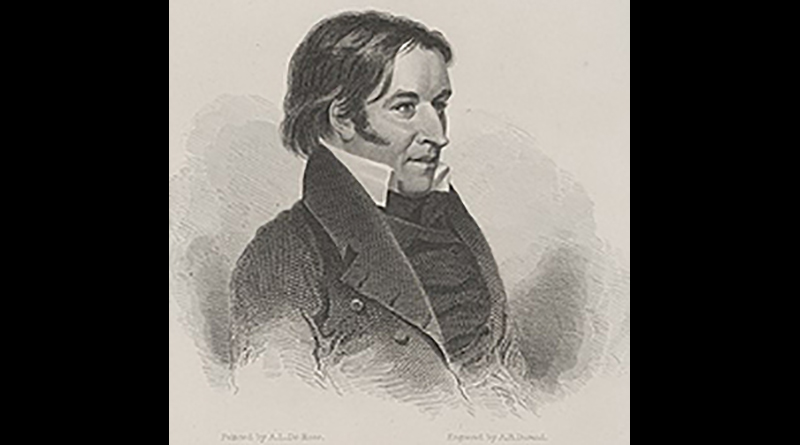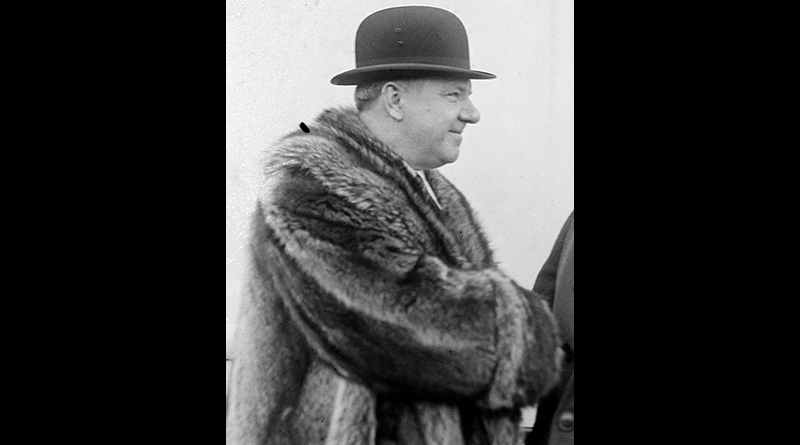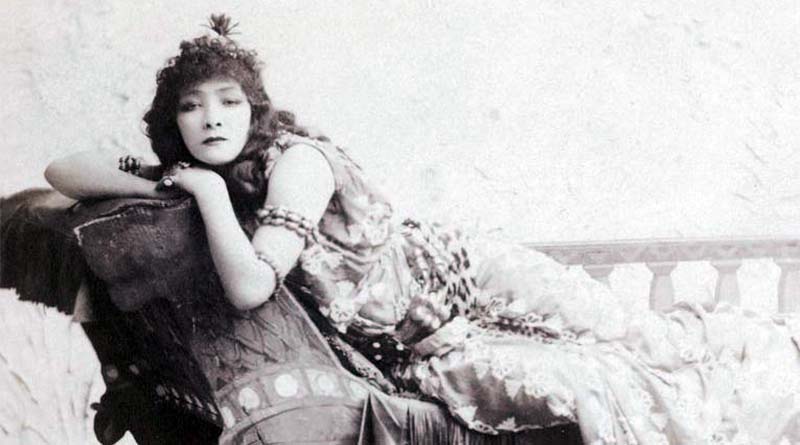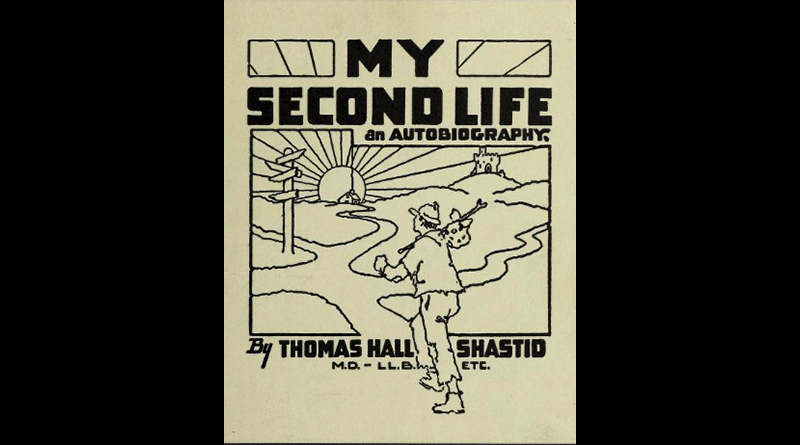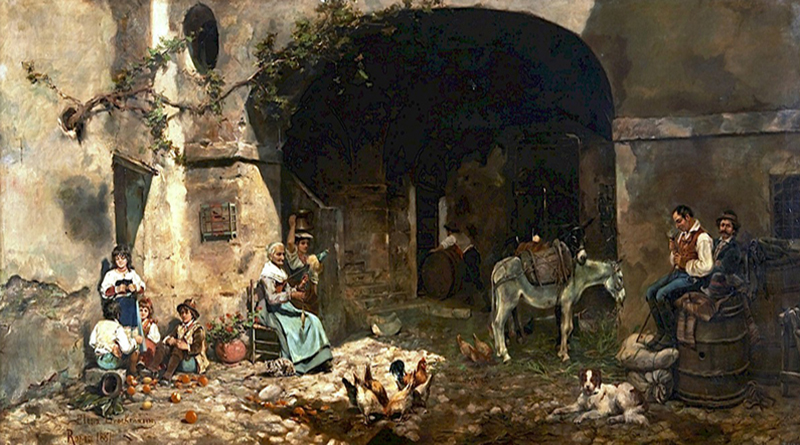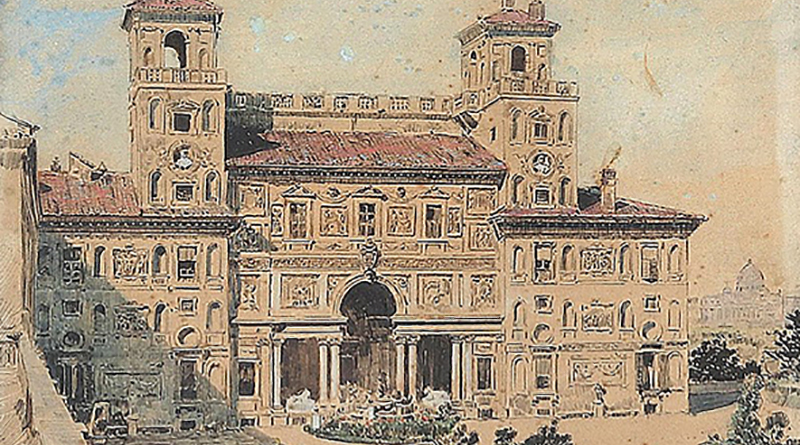The next fall after this marriage, three of my neighbours and myself determined to explore a new country. Their names were Robinson, Frazier, and Rich. We set out for the Creek country, crossing the Tennessee river; and after having made a day’s travel, we stop’d at the house of one of my old acquaintances, who had settled there after the war. Resting here a day, Frazier turned out to hunt, being a great hunter; but he got badly bit by a very poisonous snake, and so we left him and went on. We passed through a large rich valley, called Jones’s valley, where several other families had settled, and continued our course till we came near to the place where Tuscaloosa now stands. Here we camped, as there were no inhabitants, and hobbled out our horses for the night.
About two hours before day, we heard the bells on our horses going back the way we had come, as they had started to leave us. As soon as it was daylight, I started in pursuit of them on foot, and carrying my rifle, which was a very heavy one. I went ahead the whole day, wading creeks and swamps, and climbing mountains; but I couldn’t overtake our horses, though I could hear of them at every house they passed. I at last found I couldn’t catch up with them, and so I gave up the hunt, and turned back to the last house I had passed, and staid there till morning. From the best calculation we could make, I had walked over fifty miles that day; and the next morning I was so sore, and fatigued, that I felt like I couldn’t walk any more. But I was anxious to get back to where I had left my company, and so I started and went on, but mighty slowly, till after the middle of the day. I now began to feel mighty sick, and had a dreadful head-ache. My rifle was so heavy, and I felt so weak, that I lay down by the side of the trace, in a perfect wilderness too, to see if I wouldn’t get better.
In a short time some Indians came along. They had some ripe melons, and wanted me to eat some, but I was so sick I couldn’t. They then signed to me, that I would die, and be buried; a thing I was confoundedly afraid of myself. But I asked them how near it was to any house? By their signs, again, they made me understand it was a mile and a half. I got up to go; but when I rose, I reeled about like a cow with the blind staggers, or a fellow who had taken too many “horns.” One of the Indians proposed to go with me, and carry my gun. I gave him half a dollar, and accepted his offer. We got to the house, by which time I was pretty far gone, but was kindly received, and got on to a bed. The woman did all she could for me with her warm teas, but I still continued bad enough, with a high fever, and generally out of my senses. The next day two of my neighbours were passing the road, and heard of my situation, and came to where I was. They were going nearly the route I had intended to go, to look at the country; and so they took me first on one of their horses, and then on the other, till they got me back to where I had left my company. I expected I would get better, and be able to go on with them, but, instead of this, I got worse and worse; and when we got there, I wasn’t able to sit up at all. I thought now the jig was mighty nigh up with me, but I determined to keep a stiff upper lip. They carried me to a house, and each of my comrades bought him a horse, and they all set out together, leaving me behind. I knew but little that was going on for about two weeks; but the family treated me with every possible kindness in their power, and I shall always feel thankful to them. The man’s name was Jesse Jones. At the end of two weeks I began to mend without the help of a doctor, or of any doctor’s means. In this time, however, as they told me, I was speechless for five days, and they had no thought that I would ever speak again, — in Congress or any where else. And so the woman, who had a bottle of Batesman’s draps [a tincture of opium and camphor, with catechu and anise], thought if they killed me, I would only die any how, and so she would try it with me. She gave me the whole bottle, which throwed me into a sweat that continued on me all night; when at last I seemed to make up, and spoke, and asked her for a drink of water. This almost alarmed her, for she was looking every minute for me to die. She gave me the water, and, from that time, I began slowly to mend, and I so kept on till I was able at last to walk about a little…. But when I got so I could travel a little, I got a waggoner who was passing along to hawl me to where he lived, which was about twenty miles from my house. I still mended as we went along, and when we got to his stopping place, I hired one of his horses, and went on home. I was so pale, and so much reduced, that my face looked like it had been half soled with brown paper.
When I got there, it was to the utter astonishment of my wife; for she supposed I was dead. My neighbours who had started with me had returned and took my horse home, which they had found with their’s; and they reported that they had seen men who had helped to bury me; and who saw me draw my last breath. I know’d this was a whapper of a lie, as soon as I heard it. My wife had hired a man, and sent him out to see what had become of my money and other things; but I had missed the man as I went in, and he didn’t return until some time after I got home, as he went all the way to where I lay sick, before he heard that I was still in the land of the living and a-kicking. — David Crockett, in his book A Narrative of the Life of David Crockett (read for free)

